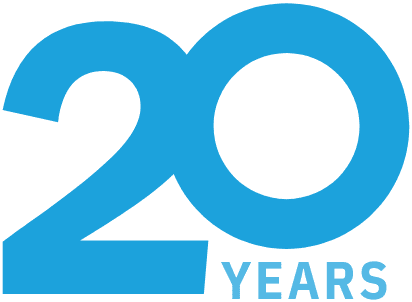When your brand, reputation, and legal obligations are at stake, choosing the right product destruction company isn’t a minor decision — it’s a critical part of your business risk management. Whether you’re dealing with excess inventory, product recalls, counterfeit goods, or obsolete branded merchandise, you need a trusted partner who can dispose of sensitive products securely, permanently, and responsibly.
In this guide, we’ll walk through exactly what to look for when selecting a secure product destruction provider, including considerations for apparel destruction and brand-sensitive industries.
Why Product Destruction Matters
Secure product destruction isn’t just about throwing items away — it’s about protecting your business:
- Brand Protection: Prevents unauthorized resale, counterfeiting, and reputational damage.
- Regulatory Compliance: Ensures compliance with consumer safety, environmental, and privacy regulations.
- Consumer Safety: Prevents defective, expired, or recalled products from reaching the market.
- Liability Reduction: Minimizes legal exposure in the event of recalls or unsafe product circulation.
- Environmental Responsibility: Provides proper disposal or recycling, where applicable, to reduce environmental impact.
Common Types of Products Requiring Destruction
| Product Category | Examples |
|---|---|
| Apparel & Textiles | Branded clothing, uniforms, recalled or defective garments |
| Consumer Goods | Electronics, cosmetics, toys, household products |
| Food & Beverage | Expired or recalled products, damaged packaging |
| Pharmaceuticals | Expired medications, returns, rejected batches |
| Electronics | Hard drives, prototypes, proprietary devices |
| Industrial Goods | Equipment, obsolete parts, branded components |
8 Key Criteria When Choosing a Product Destruction Partner (and Why They Matter)
Choosing the right product destruction partner is a complex decision that requires careful consideration of multiple critical elements. Each factor plays a vital role in ensuring that your products are securely destroyed, your brand is protected, and your business remains compliant with all applicable regulations. Understanding these criteria helps you make an informed choice and avoid costly mistakes.
1. Secure Chain of Custody
Why it matters: Once your products leave your facility, you need complete confidence they won’t be diverted, mishandled, or end up in the wrong hands. This protects your brand and provides legal documentation should you need proof of secure disposal. A secure chain of custody means:
- Sealed containers for transport
- GPS-tracked vehicles
- Documented hand-offs at every stage
- Secure facilities with restricted access
2. Transparent Destruction Process
Why it matters: A trustworthy provider doesn’t hide how your products are destroyed. They should be able to explain:
- The destruction methods they use (e.g. shredding, crushing, incineration)
- Whether destruction occurs on-site or at their facility
- The level of physical security at their facility
- How destroyed materials are handled after processing
This level of transparency builds confidence that destruction is thorough, irreversible, and compliant.
3. Industry Experience
Why it matters: Different industries face very different destruction risks:
- Apparel & textiles: Must ensure branded or defective items don’t re-enter circulation.
- Pharmaceuticals: Require strict disposal to meet health regulations.
- Consumer products: Risk consumer safety issues if recalled or defective goods reappear on the market.
- Electronics: Contain sensitive proprietary designs and intellectual property that need permanent destruction.
Work with a partner who understands your industry’s unique challenges and risks, and has experience destroying the specific materials you handle.
4. Appropriate Destruction Methods
Why it matters: Not all products can be handled the same way. Your provider should use destruction methods that fully eliminate the possibility of reuse or resale.
- Apparel: Incineration or shredding prevents garments from being resold or counterfeited.
- Electronics: Physical destruction of hard drives and devices permanently destroys proprietary information.
- Consumer goods: Shredding or crushing eliminates the product’s form and functionality.
5. Environmental Responsibility
Why it matters: Destruction shouldn’t come at the expense of the environment. This ensures you’re not only protecting your brand but also reducing your environmental footprint. A reputable partner will:
- Follow local environmental regulations
- Recycle or divert materials from landfill where possible
- Provide documentation of final material disposition
6. Confidentiality & Security
Why it matters: Sensitive business information is often tied to products being destroyed — prototypes, rejected batches, or proprietary designs. Your provider should have:
- Staff background checks
- Confidentiality agreements
- Secure storage and handling protocols
- Facility surveillance and controlled access
This minimizes internal and external risk, ensuring products remain secure until destruction is complete.
7. Comprehensive Documentation & Reporting
Why it matters: Detailed reporting gives you proof of compliance and peace of mind. This documentation can protect your business during audits, recalls, or legal reviews and should include:
- Certificates of destruction for each load
- Date, time, and location of destruction
- Chain of custody logs
- Photos or video upon request
8. Local Presence & Accessibility
Why it matters: A local provider brings important operational advantages:
- Faster scheduling and turnaround times
- Lower transportation costs
- Firsthand understanding of local compliance regulations
- Personal customer service with dedicated account managers
Working with a Canadian-owned product destruction provider like Blue-Pencil means you’re dealing with real people who know your market and respond quickly.
Special Considerations for Apparel Destruction
The destruction of branded apparel and uniforms is a specialized service — and one where mistakes can easily lead to reputational harm.
Why apparel destruction requires extra care:
- High resale value on secondary markets
- Counterfeiting risks
- Unauthorized resale of branded merchandise
- Security concerns around corporate uniforms
Red Flags That Signal an Untrustworthy Provider
Choosing the wrong partner can expose your business to significant risk. Be alert for these warning signs:
🚩 No destruction certificates provided
Without formal documentation, you have no proof destruction actually occurred — which could create legal exposure if products resurface.
🚩 Vague or inconsistent pricing
Hidden fees or unclear pricing structures may signal inexperience, lack of transparency, or poor operational controls.
🚩 Inadequate insurance coverage
Your partner should carry sufficient liability and professional insurance to cover potential losses or damages.
🚩 No clear chain-of-custody process
If there’s no way to track your materials from pickup to destruction, you’re exposed to theft, diversion, or mishandling.
🚩 Limited experience with sensitive industries
Product destruction isn’t one-size-fits-all. If the provider has no experience with your specific industry needs, it increases the risk of improper handling.
Final Thoughts: Don’t Compromise on Trust
When you hand over products for destruction, you’re trusting that partner to protect your brand reputation, legal compliance, customer safety and intellectual property. The right product destruction company should offer complete transparency, secure processes, specialized expertise, and detailed documentation — from start to finish.
If you’re looking for trusted product destruction services in Toronto, the GTA, or across Southern Ontario, Blue-Pencil offers:
- Apparel destruction
- Product recall destruction
- Secure shredding and disposal
- Full audit trail documentation
- Fast, local service
Contact Blue-Pencil today to learn how we can protect your business with secure, compliant product destruction services.



